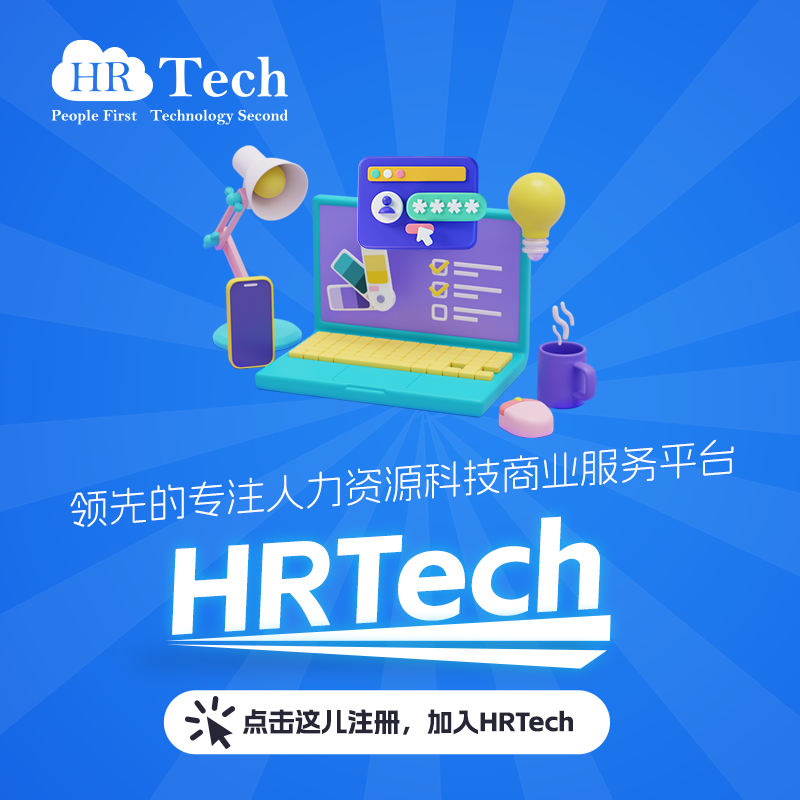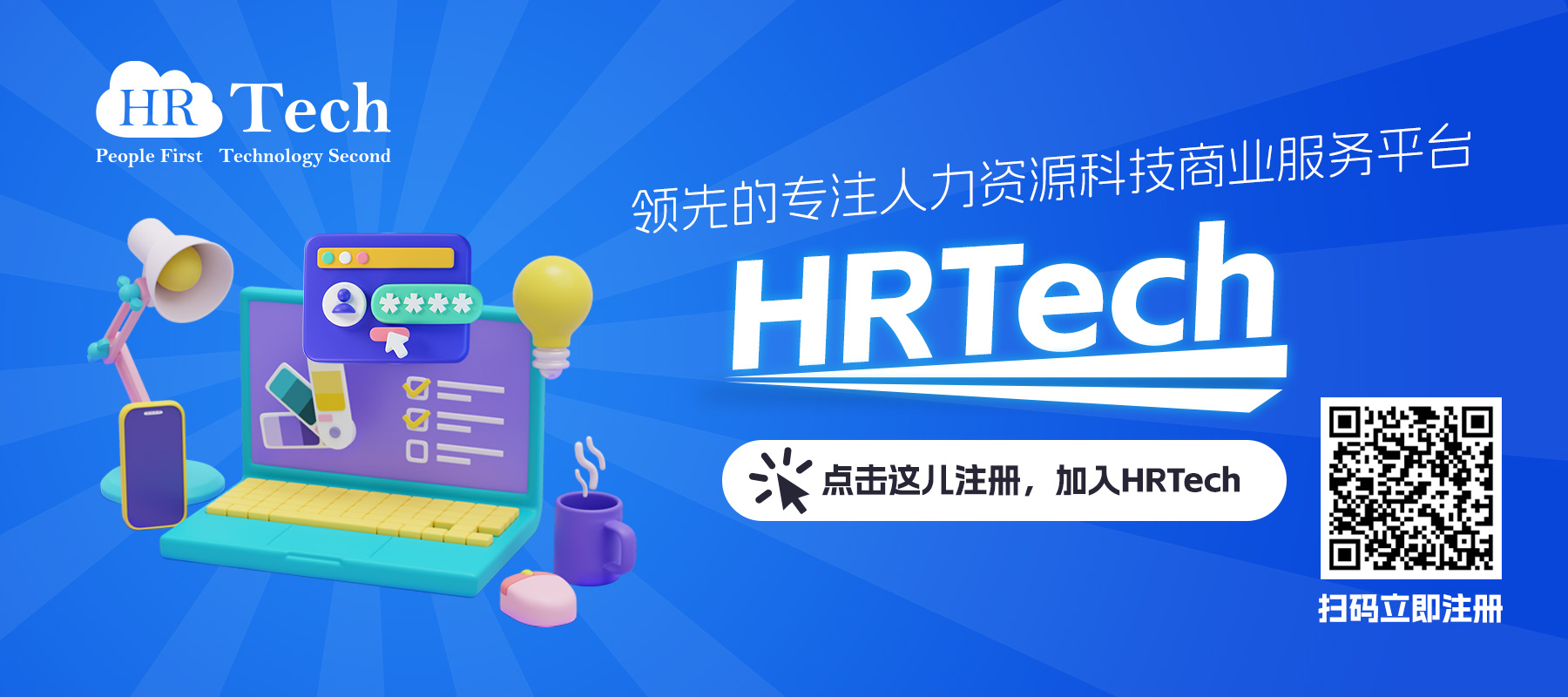-
 资讯
资讯
1.25亿美元完成对MindMeld的收购,思科完成今年第三笔收购案
思科近期宣布完成对MindMeld的收购,总金额为1.25亿美元。
MindMeld是一家能够为任何应用程序,设备或网站提供智能会话的云平台公司。企业客户使用这个平台快速创建智能会话助理,以了解用户的需求。
MindMeld之前也叫Expect Labs, 成立于2012年,其最早业务是基于iPad上的应用提供类似于“Siri”的智能语音服务。随后为了不仅停留在iPad生态内,MindMeld将产品标准化并随之开发了一套拥有语义解析,语义推理和语言生成的智能API,几乎所有主流平台和操作系统都能适配。
MindMeld此前曾获得来自IDG Ventures USA、KPG Ventures 、Samsung Ventures、GV等16家机构总计1540万美元的风险投资。近期在硅谷,会话类AI成为了收购热门标的,三星去年为Vivv支付了2.15亿美元,目的是将其产品与技术整合进三星自己的私人助理Bixby中。
同样的,思科近期在收购领域的表现也不可谓不亮眼。
记者整理了2016年到2017年5月思科所有的收购案例:
截止今日,思科从16年其共完成10起收购案,除去未透露的金额,总计达67.08亿美元。
其中,部分并购案例此前36氪也曾报道:
思科以6.1亿美元收购SD-WAN初创公司Viptela
峰回路转,即将 IPO 却被思科 37 亿美元收购,应用性能管理公司 AppDynamics 的这桩交易值不值?
思科收购虚拟容器公司 ContainerX,向软件定义和虚拟化网络进军
思科2.6亿美元收购混合云管理解决方案提供商CliQr
思科以14亿美元收购物联网公司Jasper
思科表示,MindMeld团队将与思科团队组成一个新的人工智能语义认知项目组,这一举动被外界认为将会是向IBM的Waston发起挑战的一个举动。
本文参考了多个信息来源:techcrunch.com,如若转载,请注明出处:http://36kr.com/p/5074673.html
-
 资讯
资讯
为企业及个人提供在线风险管理和保险服务平台风险管家完成Pre-A轮数千万人民币融资
近日,风险管家宣布完成Pre-A轮数千万人民币融资。本轮融资由拉卡拉旗下的考拉基金与弘信资本联合投资。华兴Alpha任此次融资的独家财务顾问。
风险管家,是为企业及个人提供在线风险管理和保险经纪服务的持牌平台。在提供风险咨询、产品定制、保险安排、理赔协助等专业保险经纪服务的同时,为用户提供移动保险管理工具和平台增值服务。
风险管家以B2B2C业务模式,通过“安逸云保”和“逸职保”两款产品,为大型互联网平台和企业员工用户提供线上线下结合的全流程保险经纪服务,根据职域场景定制开发高性价比的员工及家庭保险方案,为合作企业的员工提供购买保险的多种特权;同时发展2B经纪业务。
风险管家联合创始人、安逸科技CEO罗霄向记者介绍,风险管家从客户需求出发,为合作渠道及个人客户在全球范围内寻找最合适的保险产品,其中包括从国外成熟市场引进高端医疗、全球癌症治疗、收入损失(失能)、旅行医疗、留学生计划、长期护理等国内稀缺的优质产品,并通过与海外公司达成管理总代理模式合作、国内保险公司的再保险及TPA(第三方服务)等安排,加强对产品供给和核保定价的把控。
保险经纪业务在我国已有20年左右的历史,市场上既有通过线下服务大型企业的传统型公司,也有基于自有流量、通过获取牌照开展保险经纪业务的电商平台。风险管家则利用互联网技术提升传统风险管理的效率,瞄向个人与中小企业保险这片蓝海市场。定位于保险经纪人服务,需要专业的作业模式。“安逸云保”提供定制化风险解决方案,帮助渠道管理其用户或供应链的保险需求,同时实现流量变现。而“逸职保”提升了职场保险营销的效率,根据职域场景定制开发高性价比的保险方案,也为企业员工提供了保险内购福利。
据介绍,风险管家的核心团队有10年以上的保险经纪服务经验,多位成员曾任保险业内高管,为扩宽市场领域和业务模式创新提供了丰富的经验。除了团队本身的专业度和资源,根据对市场的把握选择合理的业务模式、一定线上运营和线下推广能力、将能力平台化,也是风险管家的壁垒。
据介绍,云保业务已与苏宁、途虎、卡行天下、oTMS等大型互联网平台达成战略合作,逸职保业务已经逐步渗入瑞众、东风、国新、中外运等百家大型国有企业。2016年实现1000万元佣金收入,今年预计达成5000万元目标。
本轮融资将用于人员引进、产品升级以及市场推广,快速扩大B2B2C的业务领域。对于风险管家未来的发展规划,罗霄表示:“加大B端企业客户资源的积累,切入更多互联网场景;通过B端对C端用户的影响,提升C端服务范围和市场覆盖面,收集更多的个人风险数据,形成个人风险管理数据库,为提供定制化的风险管理方案做准备;以先进的保险科技研发及应用,为更多企业与个人提供高质量的风险管理服务。”
作为此轮投资方,考拉基金合伙人丁柏然表示:“保险经纪行业的核心在于围绕客户需求提供有价值的保险服务解决方案,全球保险经纪业务规模呈现出超越单一保险公司规模的态势,考拉基金长期看好国内保险经纪行业的高速发展,并认可风险管家团队的专业能力。”
华兴Alpha董事总经理周翔表示:“近年来,个人、家庭对保险产品的需求越来越强烈,对保险服务专业化的要求越来越高,将催生保险经纪的快速发展。风险管家以其行业经验和服务能力,让保险经纪不只服务大型企业或高净值人群,同时面向家庭和个人,促进行业发展。”
来源:36氪,作者:郝方舟,如若转载,请注明出处:http://36kr.com/p/5074589.html
-
 资讯
资讯
职业蛙完成数千万元人民币B轮融资,华图资本投资
知网5月11日消息,今日,大学生求职服务品牌职业蛙CareerFrog宣布完成由华图资本投资的数千万元人民币B轮融资。
职业蛙创始人兼董事长卢明霞表示,这笔融资将用于产品技术研发以及人才团队建设,重点发力企业合作业务,连接大学生与企业,为企业提供大学生人才推荐服务,为大学生提供求职服务,帮助其打通求职通道。
华图资本总裁吴正杲说:“华图资本看重职业蛙的三大优势:第一是市场规模大、大学生求职培训需求越来越强烈,具有广阔的前景;第二是职业蛙在课程研发、数据分析、市场口碑等方面的优势;最后,职业蛙的业务连接了大学生和企业,为国家和社会解决就业问题,这和华图资本的主营业务优势互补。
职业蛙CareerFrog成立于2011年,是一所大学生求职服务机构,主要用户包括有求职需求的大学生和有用人需求的企业。
此前,职业蛙于2015年获得百万元天使轮融资,2016年获得由上海久有基金投资的千万级融资。
(来源:多知网)
-
 资讯
资讯
管他唠嗑还是要资料, 有了这个办公室“红绿灯”, 没人再敢打扰你了
红绿灯在日常生活中带来的便利显而易见。我们能在交通工具如此发达的今天毫发无伤地穿行在大街小巷,绝对有红绿灯的一份功劳 。
那么,把“红绿灯概念”带入办公室又会是一番怎样的场景呢?
对于上班族来说,最烦的事情之一就是专心致志工作时被人打断。
据英国《每日邮报》报道,美国每年因工作被打断而产生的经济损失高达5880亿美元(原来这个还有调查……)。
苏黎世大学和瑞士某电力科技公司意识到了这个问题,为了提高办公室工作效率,他们共同制造了一款名为FlowLight的办公室“红绿灯” 。
FlowLight内置的追踪器可以通过监测用户鼠标及键盘的使用情况,来判断用户是否在自己的座位上、是否正处于工作状态中。
如果用户鼠标及键盘的使用活跃度在平均活跃度9%以上,FlowLight装置的LED灯便会呈红色,向同事发出“工作繁忙”的讯息;
而如果在平均活跃度的9%以下,则LED灯由红转绿,释放出“空闲中”的信号。除此之外,闪烁的红灯表示“请勿打扰”,而黄灯则表示“不在座位”。
背后故事:“不堪其扰”的软件工程师
David Shepherd 是电力和自动化技术领域领导厂商ABB的工程师之一。对于他这种需要长时间专注和同时处理大量信息的工程师来说,间歇性打扰可谓“不治不行”。
FlowLight主要发明者David Shepherd
因此,Shepherd 召集了他在瑞士苏黎世大学的队伍,来应对软件工程师工作状态下被打断的情况。
完工后,Shepherd 在19个国家的 449名ABB雇员办公桌上安装了FlowLight装置,并得出使用FlowLight的雇员比不使用的雇员平均少接受46%干扰的结论。
Shepherd在19个国家的ABB办公室安装了FlowLight
另一位发明者Thomas Fritz 则意识到了FlowLight的小缺陷,他说:“FlowLight并不是为了让人们在偶尔偷懒时被‘抓包’心生愧疚而存在的。”
为了避免这样的情况发生,他特地将亮红灯的比例调整为13%/天,无论用户工作得多么拼命。同时,无论用户是打字敲键盘是为了工作,回复Facebook,抑或网购……FlowLight都将一视同仁,当作“工作状态中”。
还需改进:生物特征识别技术的极致应用
来自荷兰格罗宁根大学的Jelmer Borst 是FlowLight的忠实粉丝之一,但他认为还有更恰当的方法可以判断用户是否在工作。
Borst 认为,监测键盘和鼠标的活跃度仅能体现用户与电脑之间的互动,而忽略了用户思考的时间。在他看来,监测瞳孔扩张更为谨慎有效。Borst 说:
用户的认知负荷越大,他们的瞳孔就扩张得越大。
然而,瞳孔扩张监测器造价甚高,用在这种场合下性价比太低。不过,Shepherd和他的团队正在尝试利用其他生物特征识别技术改进FlowLight,譬如心率。
Shepherd自己的桌上就摆着个FlowLight装置,它已经为Shepherd阻挡了两年半的干扰了。
Shepherd笑称:
我常常能听到向我走来的脚步声,直到我的同事们看到我桌上的那盏红灯,顿了一瞬便扭头而去,不再打扰我。
听起来似乎很棒。有时候同事找我们说话,虽然很忙,但有时候可能真的说不出拒绝的话来……现在,请让它帮你抵挡干扰(当然,领导找你唠嗑就另当别论了)。
来源:36氪 ,作者:青迟,如若转载,请注明出处:http://36kr.com/p/5073977.html
-
 资讯
资讯
为企业提供云端视频会议服务,StarLeaf获4000万美元融资
昨日,英国创企StarLeaf宣布获得4000万美元风险投资,由Highland Europe和Grafton Capital领投。该公司主要是为企业用户提供基于云端的视频和会议服务。
StarLeaf由三位远程通信和视频会议领域的创业家所建立,这三位创始人先前曾一起建立了Madge Networks、Calista和Codian。目前,三家网络公司都已成功被收购。随后他们于2013年开始研究云服务。公司称,目前平台的使用量每年都会翻倍。
StarLeaf宣称,公司的服务能和任何第三方会议及视频技术兼容,其全球视频通讯网络平台StarLeaf OpenCloud配有完全冗余备份。除了澳大利亚,目前公司的运营范围已经普及到北美、欧洲、亚洲,共计8个国家。平台的AES-128加密标准已经运用于所有视频会议和通话中。凭借其弹性解码器和动态宽带管理,StarLeaf能够为企业提供高质量的通话和信息传输服务;视频分享、通话转发、多人对话以及通讯录集成管理等末端功能也极为丰富。
视频会议对于公司而言越来越重要。StarLeap指出,企业用户们每年要接通1亿分钟的通话,而其中有三分之二都是临时的点对点视频通话,而非事先安排好的日程会议。
StarLeaf平台的运营范围包括50多座城市,它在欧洲、南美、北美、澳大利亚和新西兰的企业客户数量增长非常快,尤其是在过去的两年里。要知道2015年它的用户数量只有65家,而2016年就已经剧增到1000多家,其中包括Travelex、Bose和Dr Martens等。
据了解,新一轮的融资将帮助公司维持这一增长势态,加大它在亚太地区的业务发展力度。在过去18个月里,它已经让员工数量翻了一倍,目前团队人数130人,它计划在未来18个月里让员工数量再翻一倍。
(编译:叶展盛)本文来自猎云网,如若转载,请注明出处:http://www.lieyunwang.com/archives/309380
-
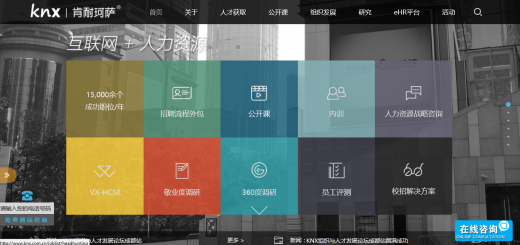 资讯
资讯
人力资本云服务提供商肯耐珂萨(KNX)完成2亿元人民币融资
记者获悉,人力资本云服务提供商肯耐珂萨已获得国内外主力投资机构东方富海、光大证券、申万宏源证券、摩根士丹利,共计2亿元人民币的投资。
肯耐珂萨创始人兼CEO沈健曾在公开场合表示:“感谢国内外优秀投资机构对肯耐珂萨的信任和支持,我们将继续坚持通过真正的人力资本云服务为企业客户创造价值。”
成立于2001年的肯耐珂萨,是中国人力资源云计算最早的先行者,当SaaS模式刚刚在国外兴起的时候,就已察觉到这将是人力资源发展的重要方向。2008年,与当时全球HCM-Cloud领先者美国Kenexa成立合资公司,大力投入SaaS应用和服务的研究。
作为人力资源B2B领域中的一位低调领跑者,肯耐珂萨数年来潜心打造“技术+内容+服务”三位一体的“KNX人力资本云服务架构”,这也是其受到多家投资机构关注的重要原因。因为,肯耐珂萨这种独特的商业模式,打通了从人事管理、招聘管理、人才管理到组织发展逐级提升的四层产品闭环体系,能够为处于不同生命周期的企业客户提供各种能落地、具有真正价值的解决方案,这是与其他HR SaaS厂商最根本的差异。
据悉,肯耐珂萨获得了大量投资机构的青睐,并且被多种类型的资本结构所看好,既有国际主流机构摩根士丹利、国内民营优秀机构东方富海,还有券商直投机构光大证券和申万宏源。以此来看,肯耐珂萨的发展与潜力已普遍获得了市场认可。
来源:KNX
-
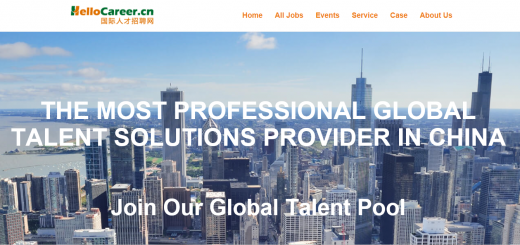 资讯
资讯
为企业寻找中高端国际人才,HelloCareer获英格玛人力资源基金战略投资
近日获悉,国际人才招聘网站 HelloCareer 获得了英格玛人力资源技术基金战略投资。公司于2015年11月获得了冠群驰骋的300万人民币天使轮融资。新资金主要用于增加顾问团队人数、促进平台技术迭代和扩展国际市场。
HRTechChina曾经报道过HelloCareer,HelloCareer 是一个从国际人才切招聘的项目,目前主要是帮中国企业招聘海外人才,以及帮助海外企业当地招聘。
随着中国经济迅速发展,很多企业走向国际化,尤其是机械加工制造、能源、制药、汽车、IT互联网等科技性、技术性较强的行业更需要国际经验,特别需要掌握相关知识的外籍人士以及旅居海外或者有海外相关工作经验的华人。但是这些企业在寻找国际人才的时候无从下手,首先企业自身没有渠道;其次企业HR缺少国际人才招聘的专业性,在与候选人交流的时候缺乏相关的经验和知识,容易导致沟通不畅,比如国家政策解读、国际文化背景知识等;再者国内招聘网站业务重点并不在国际人才上,虽然某些网站有留学生简历信息,但又不符合企业对中高端人才的需求。
针对企业“想要又得不到”这一痛点,HelloCareer建立了连接企业与国际人才的平台,平台分为企业版和求职版,需求双方可以在平台上发布需求、申请职位,这一点和国内招聘网站类似。此外,HelloCareer帮助企业做海外推广、品牌推介会,在此过程中收集应聘者简历,完善后台数据库。由于不同行业对人才需求差异较大,许多中高端人才不会主动递交简历,所以HelloCareer会根据客户需求做定制化服务。比如某电视台希望寻找有两年工作经验的西班牙语播音,HelloCareer顾问团队就会定向寻找相关国际人才,寻找周期从一个星期到半年时间不等,成功率在35%左右。
创始人王振中告知记者,平台目前服务的用户有90%都是中大规模的企业,大企业更愿意为IT技术类、市场营销类的岗位付费,因为这类职位国外远远比国内先进得多,一旦引入高水平候选人会为公司带来可观的营收,候选人职位年薪多为50万元以上,HelloCareer 会收取年薪25%的服务费。
目前HelloCareer主要着手中高端人才的招聘上,留学生并不作为重点。主要是因为留学生招聘市场竞争比较充分,在职位刚需性和营收可观性上有待观察。但王振中也表示,目前学成回国学生占已完成学业学生群体的79.87%,留学生端需求越来越旺盛,但留学生招聘的难点在于面试,所以公司接下来会推出网络招聘,并推出微信小程序、APP等形式完善服务。
在谈到行业门槛时,王振中认为国际人才招聘过程中,最难的一点在与候选人沟通,这方面顾问团队起到了重要作用,也是做国际招聘平台的关键点。负责国际招聘的顾问需要具备以下几点素质,第一点是会说外语,包括英语和小语种;第二点是了解国际文化、具备国际视野;第三点是有海外工作学习经验。此外还需具备沟通技能和5年以上相关工作经验等。HelloCareer也会对顾问团队进行培训,比如怎么选择渠道、当前国家对国际人才战略的相关政策等。
行业竞品方面,国内像智联招聘、前程无忧都开出了海外留学生求职版面、猎聘的猎聘北美、新东方为旗下学生成立的海威时代等,但这些网站的重点在留学生招聘,而 HelloCareer 的业务重点是放在中高端人才的招聘上。
目前HelloCareer平台一共有25万左右的的数据简历,其中主要以华人简历为主,在华外籍人士简历约有2—3万,覆盖美国、加拿大、英国、德国、印度、新加坡等88个国家 。平台注册企业有2000多家,成功合作过的有200多家,包括阿里巴巴、中信证券、腾讯、中央电视台、PayPal、中兴、海航、安邦、唯品会等。
盈利模式上,HelloCareer根据服务形式收费,主要的收入来源是猎头服务,平台会收取职位年薪25%的服务费用。其它收入来源包括根据客户需求的定制服务,费用从几万到几十万不等。据悉,公司利润率在30%-35%,目前已经实现盈亏平衡。
作者:韩旭,如若转载,请注明出处:http://36kr.com/p/5073730.html
-
 资讯
资讯
企业云通讯公司Fuze获1.34亿美元E轮融资,或将进行IPO
企业云端通讯公司Fuze宣布获3000万美元融资,自此之后该公司E轮融资结束,该轮融资数额达1.34亿美元。
3个月前,Fuze宣布获得了1.04亿美元融资。目前公司的融资总额已达3.34亿美元。
这家公司于2006年成立于马塞诸萨州,当时名叫ThinkingPhones。去年,公司改名为Fuze,该名字来源于1年前它收购的一家视频会议公司。如今,Fuze将视频会议、短信服务、即时信息和语音呼叫集成到一个平台上,另外还添加了不少工具,包括分析服务和来电显示等。同时公司的技术还能整合到其它第三方软件中,比如Zendesk、Salesforce和Gmail。
这笔3000万美元的资金来源于一家“美国顶级公共养老基金”,公司将利用融资为其企业客户带来更多产品创新,并在亚太地区和拉丁美洲进行扩张。
“这轮融资会帮助最一流的商务云端通讯平台抓住更多商机。Fuze自建立以来,已经有10多年的历史了,但过去的1年尤为特殊,大公司的首席信息官们将毫不犹豫地将公司的通讯平台移动至云端。”Fuze的联合创始人兼执行董事长Steve Kokinos说道。
Fuze有可能会在不久的将来进行IPO,但公司并没有指明具体的时间。在最近一次外媒的采访中,Kokinos表示,这次E轮融资足以支撑公司实现盈利和上市,只是哪个会先实现尚不得而知。他还表示,2018对于Fuze来说将是关键的一年。
(编译:叶展盛)本文来自猎云网,如若转载,请注明出处:http://www.lieyunwang.com/archives/307332
-
 资讯
资讯
HRTechChina专访“e成科技”:想要实现企业招聘与人才管理的智能化全流程高效衔接
编者注:中国人力资源科技创业访谈是HRTechChina 2017年推出的系列采访活动,我们精选行业中优秀的HRTech创业者,力争通过我们的平台把这些优秀的企业,产品,创业者介绍给大家。中国人力资源科技正处于一个快速发展的阶段,有大量的机会和需求,需要更多的优秀的创业者加入其中。我们HRTechChina 也非常愿意为这些创业者加油助威,提供我们的支持!
作者:於丹 转载请备注文章出处
1
此次HRTechChina记者采访了e成科技创始人兼CEO周友鸿先生。e成是领先的大数据招聘服务SaaS平台,用机器学习算法、数据挖掘、和 NLP(自然语言处理)等技术提升简历与岗位的匹配效率,激活企业及猎头等招聘机构的闲置的简历资源,提高存量简历利用率,形成协同共享效应。
1
1
公司简称:e成科技
公司全称:上海逸橙信息科技有限公司
官网:www.ifchange.com
1
谈及研发该产品的初衷,e成科技创始人兼CEO周友鸿先生告诉我们,其在创办e成之前,创业了博略咨询,一家提供中高端猎头服务、招聘外包派遣服务、人事信息咨询服务的专业顾问咨询公司。十多年的人力资源行业服务经验,让他对HR的工作流程非常熟悉。周友鸿同时也告诉HRTechChina记者,在这十多年间他也看到许多HR工作中存在的痛点,希望能为人力资源行业的工作方式和效率带来变革。这让他萌生了二次创业、打造智能化招聘服务的想法。而他认为,大数据和人工智能技术将是未来各行业的技术新趋势,在大数据时代,HR服务的新道路也将通过大数据和人工智能打开。
1
e成科技创始人兼CEO周友鸿
1
同时,周友鸿从多年从业过程中,见证着国内互联网产业发展壮大和从业者的成长,使他对未来人力资源行业的发展形成了基础判断。他认为,互联网产业遍地开花,企业服务的未来也必然是向着互联网、新技术方向发展。
1
HR行业随着科技进步,也在应势发展。互联网时代引发的第一次招聘变革使招聘工作从传统的线下招聘会、纸质简历走到线上,实现招聘过程的信息化,出现了智联招聘、前程无忧等为首的互联网产品。应聘者和企业HR信息互通、职位应聘互动的问题得到解决;同时,to B领域也有专门针对HR工作流程的北森等服务产品诞生。
1
信息化之后,“线下转线上”的人力资源行业虽然在信息处理上有了大幅度发展,但因其技术桎梏,“线下转线上”的简单信息复用率低,并未解决长期困扰HR的成本、效率、决策等运营管理问题。简历获取成本居高不下,多渠道重复下载浪费严重;云端存储的简历仍需人工逐一浏览确认;而人才管理的核心职能人才决策,其信息获取仍要耗费巨大人力进行数据解析。
1
大数据和人工智能等新技术,则从HR的工作全流程出发,在招聘渠道、人才管理流程、人才决策等更加高级管理层面,解决效率和成本问题,实现第二次招聘变革。DT与AI时代的新技术浪潮,或将成为人力资源领域颠覆性变革的最佳时机。此次变革,将完成HR行业从信息化到数据化、再到智能化的全新转变。
1
谈及产品主要解的痛点,周友鸿告诉记者,“e成科技则顺应DT时代的技术与应用趋势,基于云计算+大数据+AI多重技术,打造国内领先的一站式大数据招聘服务SaaS平台,对招聘渠道、流程、决策进行智能化建设,搭建智能人才大数据服务体系,实现企业招聘与人才管理的全流程高效衔接”,“未来,e成将进一步围绕人与组织关系、行业大数据服务、智能商业关系连接三个板块,最终升级为一家人才大数据公司。”周友鸿先生如是说到。
1
据HRTechChina了解,e成提供一站式大数据招聘服务方案,通过对招聘的渠道、流程、决策进行智能化建设,一站式解决HR招聘全流程中的工作效率、投入成本等问题。机器智能处理庞大信息量带来的筛选、匹配、数据评估等问题,把HR从大量重复的机械劳动中解放出来,将更多时间投入到策略、架构等更加高级的事情中。这些大数据和机器学习的沉淀,未来也将随着移动办公、人与组织关系变革等新人才问题的诞生而顺时衍生新的解决方案。
1
具体来看,e成产品主要从招聘“渠道、流程、决策”这3方面,针对HR工作痛点提供解决方案。HRTechChina记者了解到,根据筛选简历效果差、效率低、购买成本高这个痛点,e成推出的解决产品有:云人才库、约ta、个性化搜索推荐、职位BI;对于主投简历少,寻找人才难,挖角方向不明确,推出的产品有:人才地图、人脉内推;人才管理策略难制定等问题,则相应推出了员工宝留、人才质量评估、DDI测评。而所有这些智能化产品都通过ATS打通,一站辅助HR完成招聘全流程工作。
1
关于对大数据招聘领域的前景看法及行业预测,周友鸿分别从“创投领域、SaaS前景、人工智能落地前景、大数据行业数据”为我们解读分析预测。他认为,大数据和人工智能等新技术,为解决人力资源长期问题(渠道、效率、成本、决策等),从HR的工作全流程出发,在招聘渠道、人才管理流程、人才决策等更加高级管理层面,解决效率和成本问题,实现第二次招聘变革。DT与AI时代的新技术浪潮,或将成为人力资源领域颠覆性变革的最佳时机。此次变革,将完成HR行业从信息化到数据化、再到智能化的全新转变。
1
互联网行业一直都在追求更加快捷高效,而全新的人工智能产品,其应用本质在于低成本、高效率解决各行各业问题,它在降低成本和提高效率的道路上是无止境的。
1
当前,不论是政府层面,亦或是产、学、研、用、资本各界,都对大数据和人工智能前景普遍看好,政策支持与资本投入力度不断加大。在这样的整体趋势下,此前有统计数据表示,基于云技术的企业服务在4年间以25%-26%的高比例占据热门领域事件大头,逐渐取代电商成为最受投资人青睐的领域,2016年新成立互联网企业中18%是企业服务方向,而这其中又以人力服务表现最为抢眼。可以说,从前在国内不受重视的企业服务,近几年正在快速崛起。
1
在全社会普遍将工作流线上化、打破空间界限的时代,SaaS产品对企业而言是不可或缺的工具。近几年创投市场中的人力资源SaaS平台,已基本具备以下共识:深挖技术壁垒、精化产品服务,让用户认可产品价值,对产品产生高粘性,从而构建具备竞争力的业务模式基础,最终实现企业盈利的企业发展生态链。能够真正深钻技术与产品落地的人力资源SaaS,拥有很大机会去重新书写市场规范,改变行业模式。
1
e成科技团队合影
另外,据HRTechChina了解,e成科技目前团队规模已达300人,其中产品技术团队100余人,核心成员全部来自于BAT。融资方面,e成科技2014年10月,完成A轮千万美金融资,光速中国领投,开启全面市场化; 2016年3月23日,完成B轮数千万美元融资,凯辉创新领投、光速中国跟投。
本栏目是HRTechChina 推出的中国人力资源科技创业访谈系列,如果你希望参与,请和我们联系 yudan@hrtechchina.com
-
 资讯
资讯
9个美国最新最热美国企业服务产品一览
美国著名的热门应用风向标Product Hunt盘点了近期面世的一众新产品,从Google、Youtube等巨头发布的产品更新,到Elon Musk全新脑机接口公司,再到刚刚面世的创业项目,HRTech为大家将其中涉及企业服务的项目整理如下。
消息来源:阿尔法公社
YC创业学校
来自Y Combinator 的创业课程
来自Y Combinator深受大家喜爱的创业学校课程强势回归。他们在富有更多拓展性的方法上,建立起这个课程去教育和发掘伟大的创业者们。你可以作为一个学生在创业学校里上课,这意味着你将会得到一个顾问。如果你没有正式成为学生,你也可以以游客的身份试听所有的讲座和讨论会。
可视化传记 Visual Biographies
为视觉学习者展现名人们不可思议的大事表
这些不可思议的可视化传记集锦会帮助你掌握名人们的成功时间表,包括杰夫·贝索斯、艾隆·马斯克、希拉里·克林顿、爱因斯坦、史蒂夫·乔布斯等等。这些传记的创作者,Adioma,还有一些工具可以帮助你创建自己的专业信息表。
Duolingo的小卡片
从现在起,用这个记忆卡app在网上学习语言
Duolingo的小卡片代表着记忆卡的未来。这个应用通过间隔记忆和其他的学习小技巧帮助你学习新的知识。你可以选择成百上千的话题,比如星座、各国首都、语言、世界历史等等。选择你感兴趣的话题和老师,马上开始你的学习之旅吧!
网站:http://www.duolingo.cn/
环聊Hangouts
带上你的小伙伴们一起玩耍
Google已经正式停用了Gchat( 又叫做Google Talk),并用其新开发的环聊系统Hangouts代替了Gchat。Hangouts 已经启动并且运行了四年,随着Google 整合服务所带来的商业用户的增加,Hangouts的界面也会有一些细微的改变。换句话说,Gchat虽然还会存在,但是其定位会更加像Slack。
Tetra
电话内容自动记录器
当你刚打完一个电话却发现你忘记了记录重要内容时,有时会感觉好像整个谈话都浪费了。别担心,Tetra会帮你解决这个难题。它通过拨入你的电话进行自动记录,这样,你就可以只专注于谈话了。一旦谈话完成并且Tetra完成了转录,你就可以把电话的记录转存到诸如Evernote、Dropbox、 Google Docs、或者 Slack这样的应用里面。
Mixmax Calendar
随时随地,用最快捷的方法完成日程的安排
使用 Mixmax Calendar可以迅速地预定会议时间和自动化通信时间,此方法可以有效避免为了找到一个大家都可以接受的会议时间而来回奔波。你所要做的一切,就只是设置好你的空闲时间,然后分享链接,让客户从中挑选出合适的时间。
Typeform Chat
将你的typeforms转到Facebook Messenger的谈话之中
Typeform Chat 是一个用Facebook Messenger这类聊天应用的typeform 来收集数据的绝佳方法。创意在于:当你的顾客在一个安全、放松和舒适的环境下进行反馈的时候,你更可能收集到有用的数据。这就要求你比传统的调查经验提供更多的人与人之间的互动。
Remotive Jobs
一个策划收集远程公司工作的平台
Remotive Jobs 是一个策划收集远程工作的平台。如果你想在世界各地都能从事喜爱的工作,那么这就是一个开始寻找的最佳场所。通过这个场所,你可以找到各种一系列诸如销售、市场、产品、支持类、人力资源类、工程类和教育类等远程工作的机会。
Loopy
一个用来进行系统性思考的工具
Loopy 是一个交互式仿真工具,用以帮助你理解复杂的科技、政治、社会学、心理学和经济学方面的体系。这里有一个例子,是说明自动化对工作损失的影响的模型是怎样的:
用Loopy去理解一些复杂的体系,并且帮助身边的人去做同样的事情。你能够用它来做任何事,比如把它放到博客中,或者把它变为一场生动的演讲的一部分,又或者把它用到课堂的思维训练和职场里的分工协作上,这些都是它所能发挥作用的地方。
 扫一扫 加微信
hrtechchina
扫一扫 加微信
hrtechchina
 资讯
资讯
 资讯
资讯
 资讯
资讯
 资讯
资讯
 资讯
资讯
 资讯
资讯
 资讯
资讯
 资讯
资讯
 资讯
资讯
 资讯
资讯





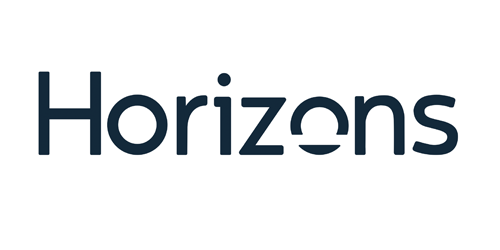
 扫一扫 加微信
hrtechchina
扫一扫 加微信
hrtechchina



